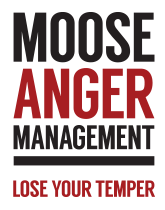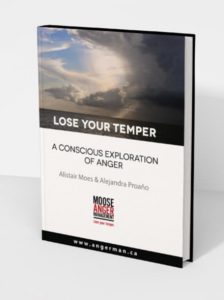When She Loses It
How should a man respond when anger gets the best of his female partner?
I have worked with thousands of men on the topic of anger management. I have also worked with over a thousand women by co-facilitating women’s anger management groups and working with women individually or as part of a couple. As well, I have been in relationships with women who became pretty intense with their anger.
I have had many men tell me about the “crazy” behaviour of their female partner. I tell them that her behaviour is not what we are going to work with. What we will focus on is his response to her.
We have no real control over others. In fact, we can barely control ourselves in those moments when the intensity rises in a relationship. I like to ask, “tell me about times when blaming her helped.” This is usually followed by some laughter in the group, so we focus on the person in the room.
We have no real control over others. In fact, we can barely control ourselves in those moments when the intensity rises in a relationship. I like to ask, “tell me about times when blaming her helped.” This is usually followed by some laughter in the group, so we focus on the person in the room.
There is a key difference between anger for men and women. As men, most of us were socialized from a young age to not show any emotions except perhaps anger. However, women—again, from a young age—were socialized to show the full range of emotions, except anger. Unlike most areas of counselling, where women are more likely to attend than are men, when it comes to anger, it is actually easier for men to attend the counselling sessions. The historic socialization around anger taught us that an angry man was seen as powerful, strong, focused, and determined.
The idea of an angry woman, especially historically, was that she was crazy, hysterical, emotional, and unbalanced. This has been changing and must continue to change. I am a strong feminist. I believe in valuing each person equally. If the man acts in a manner that is manipulative, toxic, undermining, blaming and condescending, it makes sense that she gets triggered, and does, in fact, get angry. This does not justify turning her anger into hostility. Anger is there as the “guardian of our boundaries.” When boundaries are crossed, it tends to show up in all of us.
Anger occurs. It is supposed to. It is a problem if there is none. When one person in an intimate relationship escalates to the point of actively doing things to control, dominate, blame, and use intense anger, or even violence, to get their way, four things tend to happen:
- Their ego, that part of them that has to be seen and heard, win, get their way, and be right, takes them over;
- They disconnect from their heart, so they cannot access their compassion, and are unable to access their own, or the other’s humanity, see from the other’s perspective;
- They disconnect from their emotional intelligence, the wisdom in the body, so they no longer feel love or care for the other or shame (the guardian of our integrity), that sense in our heart or sternum where we feel bad about saying or doing things. The pain receptors numb as the body moves toward fight or flight, so the person doesn’t feel healthy shame. Because we don’t feel that, we cross boundaries, unhesitatingly. The only emotions present at this point are the ones surrounding the ego;
- We disconnect from our intellectual intelligence, the ability to see the big picture, like how this will affect us, and the other, in seconds or minutes, or years. There is an inverse relationship between how high a person escalates, and their emotional maturity. The higher the escalation, the lower the emotional age (which explains why at times we act like children). Things tend to be pretty dramatic at this point. By now the person is left with the reptilian brain in charge, which just focuses on survival, control, power, winning, and being right. We all know how well that works.
When one person goes into this egocentric place it is always an invitation for the other to join. We respond or react differently depending on our conditioning, what we learned growing up. When I was a kid, if my mom, who could get really angry, screamed, broke things, or threatened to chop us up into little bits – it scared the crap out of me – and I would go somewhere else, disconnect from the fear by watching TV, or by reading, or just getting the hell out of there. Fortunately most of the time she was a loving mother – she died suddenly almost 40 years ago, when I was 18, so I feel like she wouldn’t mind my honesty about her actions here. My response was not necessarily what my brothers learned, but one that many men I have worked with have shown, a pattern of: shutting down, burying things, shrinking, and withdrawing, which, once learned in childhood, is brought into their adult relationships. It didn’t work for me. I became passive. Also, I was afraid of my anger. It was in me, but like many men, I did not have a father that did anger well. I followed somewhat in his path. To assist in the shutting down and burying things, alcohol, like my father, played a role. I clearly needed to learn more.
Learning to be with a partner’s anger also meant learning to be with my anger, and my physiology. When I had a partner escalate, my scared little kid would take over. He could weasel out of situations with manipulation, or on rare occasion really lose it, when the intensity of all that pent up anger was too much. I smashed things here and there. I became quite a good runner, and ran many races to deal with all that tension in me. I ran a lot of messy muddy trail races. Living in a rainforest on the West Coast of Canada made this reflection of my inner life easy to access. But I needed to do more. It was never enough. Nothing ever really got resolved, and all the tension from the conflict left me feeling like there was something wrong with me, although most often it showed up in my thoughts as blaming my partner.
Fortunately, I met Robert Masters, Ph.D. Through working with him I stepped deeper into my anger (after all, I had been running anger management groups for years now – there were embarrassment and secrecy there.) I started to get to know how it felt in my guts, in my sternum, in my chest and in my heart and breathing. I came to befriend it by learning how it existed physically in me, and how it acted in my thoughts. My partners’ anger, triggered the experience of my mom’s anger. It scared me, but it scared me less as I related to that scared little kid with more care and love. Relating differently to myself changed things. It put the focus on something I had some control over, rather than focusing on the other. The most important relationship you have is with yourself. I started to get that.
After practicing stepping back and gaining perspective, I started to recognize that I wasn’t powerless. I found that I could breathe more easily, and react less when my partner started to use her anger to talk in circles around me, blame me, and attack me. I ended up standing my ground, with strength and healthy masculine power. More than one relationship ended because of this. And lo and behold, a new relationship started, where conflict could be resolved, where I held myself as an adult more often. Anger turned into the friend of myself and my partner. This whole journey helped me immensely as a husband, father, therapist and anger management specialist. I am far from done learning and am enjoying the trip more than ever.
May you and your anger relate to each other with vulnerability, strength, dignity, and love.
Originally published at The Good Men Project




